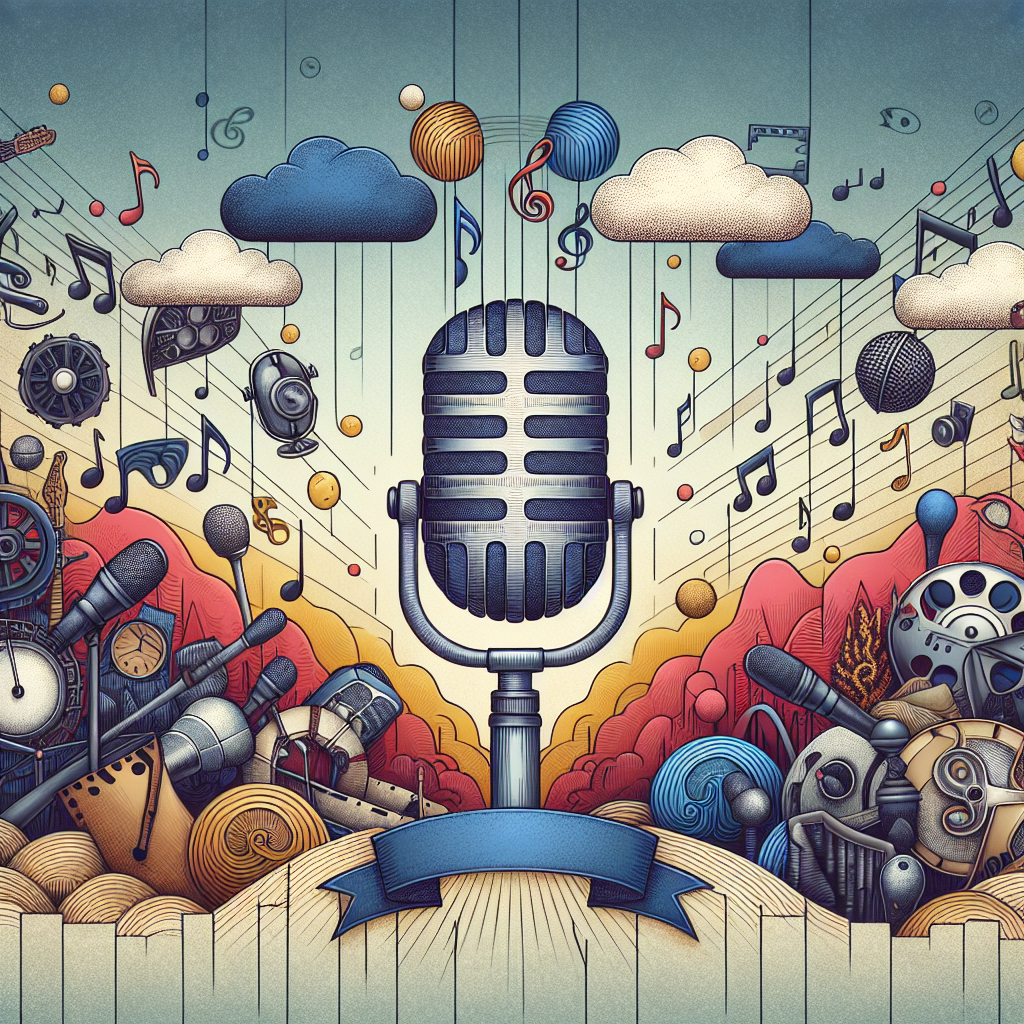Podcasts have become a powerful force in the entertainment landscape, providing a new platform for storytelling, information sharing, and engaging content. With the rise of smartphones and the increasing accessibility of high-quality recording equipment, anyone with a message to share can now create their own podcast and reach a global audience. This has led to a surge in the popularity of podcasts across a wide range of genres, from true crime and comedy to business and self-help.
But how exactly do podcasts influence the entertainment landscape? In this article, we will explore the ways in which podcasts have impacted the industry and examine the reasons behind their widespread success.
Podcasts as a New Form of Entertainment
Podcasts offer a unique form of entertainment that is distinct from traditional media such as television, film, or radio. Unlike these mediums, podcasts are typically created by individuals or small teams and are often driven by a passion for a particular subject or topic. This allows for a more personal and intimate connection between the creators and their audience, resulting in a more engaging and authentic listening experience.
Furthermore, podcasts are highly accessible and can be consumed on-demand, meaning listeners can enjoy their favorite shows whenever and wherever they choose. This flexibility has made podcasts an increasingly popular choice for entertainment, especially among younger audiences who prefer to consume content on their own terms.
Podcasts and the Rise of Serial Storytelling
One of the most significant ways in which podcasts have influenced the entertainment landscape is through the rise of serial storytelling. Serial podcasts, which are typically released in episodic format, have become extremely popular in recent years, with shows like “Serial” and “S-Town” garnering millions of listeners and widespread critical acclaim.
Serial storytelling in podcasts allows creators to develop complex narratives over multiple episodes, creating a sense of suspense and anticipation that keeps listeners coming back for more. This format has proven to be particularly effective for true crime podcasts, where each episode reveals new details and twists in a gripping real-life mystery.
The success of serial storytelling in podcasts has also influenced other forms of entertainment, with television shows like “Making a Murderer” and “The Jinx” adopting a similar episodic format to engage viewers and build suspense. This cross-pollination of ideas between podcasts and traditional media has led to a more diverse and innovative entertainment landscape.
Podcasts as a Platform for Diverse Voices
Another way in which podcasts have influenced the entertainment landscape is by providing a platform for diverse voices and perspectives that may not be represented in mainstream media. Podcasts allow creators to share their own stories and experiences without the constraints of traditional gatekeepers, leading to a more inclusive and diverse range of content.
This openness to diverse voices has helped podcasts to become a powerful tool for social change, with shows like “Code Switch” and “The Read” tackling issues of race, gender, and identity in a thoughtful and engaging way. By providing a platform for underrepresented communities to share their stories, podcasts have helped to raise awareness of social issues and promote a more inclusive and equitable society.
Moreover, podcasts have also given a voice to marginalized communities who may not have access to traditional forms of media. LGBTQ+ creators, people of color, and individuals with disabilities have found a welcoming and supportive platform in the podcasting community, allowing them to share their stories and connect with like-minded listeners.
FAQs:
Q: Are podcasts only for entertainment purposes?
A: While many podcasts are created for entertainment purposes, there are also podcasts that focus on education, news, self-help, and personal development. Podcasts cover a wide range of genres and topics, catering to a diverse audience with varied interests.
Q: How can I start my own podcast?
A: Starting your own podcast is relatively easy and requires only a few essential tools, such as a microphone, recording software, and a hosting platform. There are numerous online resources and tutorials available to help you get started, so don’t be intimidated by the technical aspects of podcasting.
Q: How do podcasts make money?
A: Podcasts can generate revenue through a variety of sources, including sponsorships, advertising, merchandise sales, and crowdfunding. Many popular podcasts also offer premium content or exclusive episodes to paid subscribers, providing an additional source of income for the creators.
In conclusion, podcasts have had a significant impact on the entertainment landscape, providing a new platform for diverse voices, serial storytelling, and engaging content. As podcasts continue to grow in popularity, they will undoubtedly shape the future of entertainment and inspire new generations of creators to share their stories with the world.
